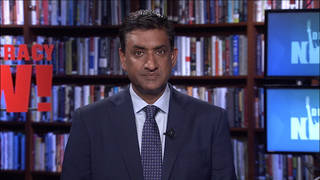Israel Approves 19 New West Bank Settlements as State-Sponsored Violence Escalates
There’s been a sharp rise of illegal settlements in the occupied West Bank under Israel’s current far-right government. Israel’s Cabinet approved a proposal for the construction of 19 new Israeli settlements in the occupied West Bank on Sunday. Amnesty International researcher Budour Hassan says the move “entrenches the apartheid system we’re seeing in the West Bank.” Experts warn that the settlements further threaten the possibility of creating a Palestinian state.



























